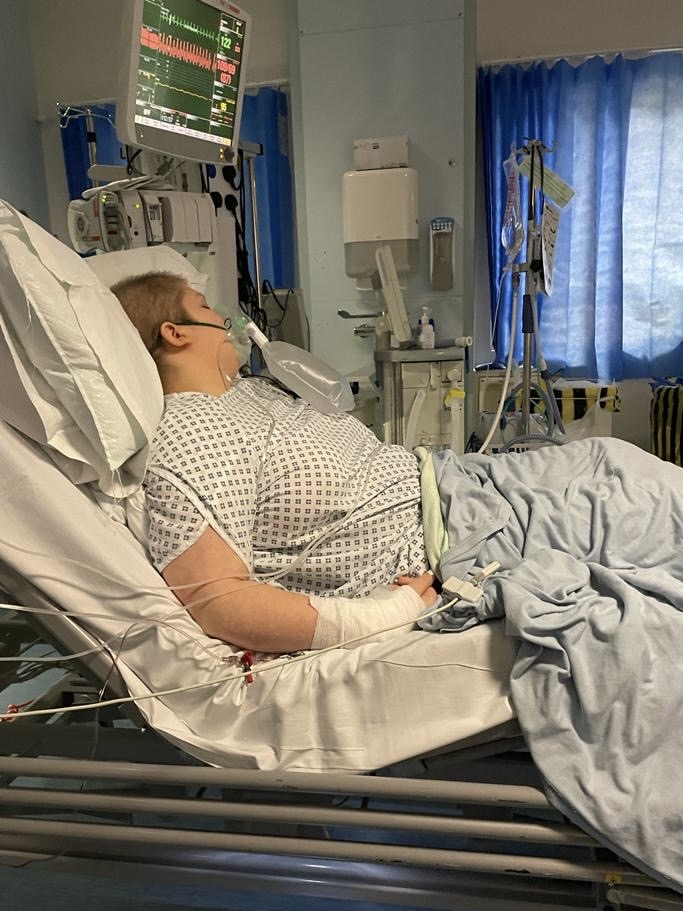International Women's Day: Celebrating Our Women Nurses And Youth Support Coordinators
For International Women’s Day this year, we’d like to spotlight some of the fantastic women Nurses and Youth Support Coordianators (inclusive of trans and intersex identities) who work for Teenage Cancer Trust, making a huge impact on the lives of young people with cancer. Many of the young people treated by Teenage Cancer Trust have spoken about how Teenage Cancer Trust funded staff helped them during and after their treatment, and often it is women at the centre of those stories.
We know that more than 75% of NHS staff are women and on International Women’s Day we’d like to celebrate their amazing contribution to healthcare, especially focusing on the wonderful nurses and Youth Support Coordinators funded by Teenage Cancer Trust. Despite their workload, our funded staff find a way to make young people feel like individuals, rather than just any other patient. The way Clinical Nurses and Youth Support Coordinators truly get to know the young people they work with was highlighted as a key quality by several of the young people who talked to us. Rachel said that her Clinical Nurse Specialist Fiona and Youth Support Coordinator Nicola were a “godsend” on her ward, and explained how important being given that special, focused attention is.
“It’s so nice because they remember everything about you. Every time I see Fiona we’ll talk about holidays to America, and she’ll ask me how med school is going. It doesn’t feel forced. It feels like they actually want to be there. It really makes a difference because you can tell they actually care about you and who you are as a person, as opposed to a medical case”.
Ciaran also highlighted how he felt Teenage Cancer Trust staff dedicated themselves to forming a bond and getting to know him. On top of this, they were able to put often complex medical information into more understandable terms. Ciaran said “the Youth Support Coordinator, Charlene, and the nurses, Vic and Claire, spent time getting to know me even better. They were at my consultations and would step in when the doctors were using too much ‘doctor speak’ and ask the doctors to explain things. Vic and Claire would also break the medical information down for me afterwards and answer any questions I had. They had a lot of time for me and would sit and talk to me”.
Getting to know patients on a more profound level, our staff are also able to help encourage skills and passions, which is both therapeutic and can have a genuine impact on young people’s futures. Phoebe talked about how important her Youth Support Coordinator, Nic, was to her engagement with her artistic interests. “Because Nic got to know me, she knew I was passionate about art, and she helped me to be able to do art during treatment. She got things from the art department for me and was constantly offering me activities to do. I used to get anxious about my chemo and I did art to distract me and to stop me thinking about it”. She added – “I’ve taken Textiles and Art for GCSE and want to go into fashion design in the future. I’m glad that Nic kept me on track with my art while I was in hospital”.
Laura talked about how her Youth Support Coordinator Gemma also noticed her artistic interests. “I’m into arts and crafts so Gemma did a lot of that kind of thing with me”. On top of this, “Gemma also organised lots of events. I’ve been bowling, to the theatre, out for meals and been to Lush to make bath bombs. Again, there was no pressure for me to go if I didn’t feel up for it, but I always enjoyed it. I met different people each time and it was nice to chat to people who could relate to me. We didn’t usually talk about cancer and when we did, we only had to share what we wanted to. Often, we didn’t even talk about cancer. We just talked about day-to-day things and had a laugh”.
Helping people come out of their shells and form parts of different communities is another way of helping through their treatment and post-treatment process. This sense of opening up, is also crucial to potential mental health struggles, as Cerys explains. “My Youth Support Coordinator Julie still checks in on me after treatment, but I didn’t tell her I was struggling with my mental health. She was with me at FYSOT (Find Your Sense Of Tumour), and she reminded me that it was ok for me to talk to her if I was struggling. She’s going to check in on me more often now. I feel really relieved that FYSOT opened up that conversion – usually it’s easy for me to make out that I am ok”.
Laura was also keen to point out the mental health support she received. “I had a lot of anxiety and Maureen (Clinical Nurse Specialist) was brilliant with me. She spent a lot of time with me and did breathing exercises to calm me down. Danielle, another Clinical Nurse Specialist for Teenage Cancer Trust, was a great emotional support too”.
As is clear from the examples given by the young people who have spoken to us, all our frontline staff are excelling at providing care, creating communities and giving young people with cancer all the support they can get. But on International Women’s Day, we’d like to especially show our appreciation for the women on the frontline who are making such a big difference to so many young people’s lives.

